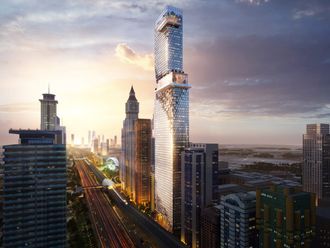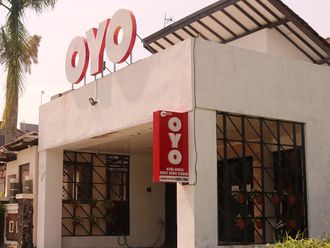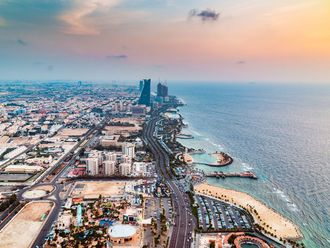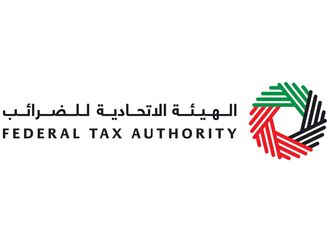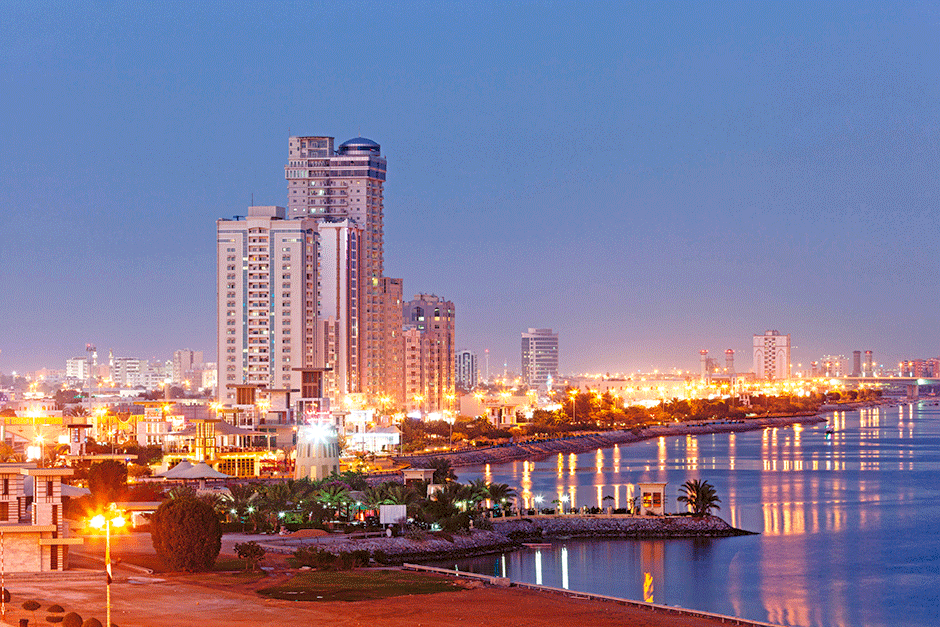
Seventy-six per cent of expatriate residents would like to buy a home in the UAE, according to a recent survey by the Compareit4me.com. The finance comparison website also notedthat in Dubai alone, apartment prices dropped 3.6 per cent from April 2014 to April 2015, while villa prices fell 3.7 per cent over the same period.
Government records show that international investors from 142 countries purchased real estate in Dubai in the first half of 2015. In Abu Dhabi, the introduction of a real estateregulator and protection for buyers of off-plan properties is expected to significantly boost investor confidence. RasAl Khaimah’s systemic economic expansion is being buoyed bydemand for both residential and holiday property. These connections between interest and intention strengthenthe case for UAE realty offerings.
1 Cheaper prices With property prices in Dubai still in decline, it’s the right time to begin looking for bargains both in the secondary market and in off-plan developments. At the luxury end, a recent launch in Dubai saw villas priced at Dh1,800 and Dh2,700 per square foot. Some property experts based in Dubai feel prime property here is undervalued. “In Knightsbridge [London], for a similar level of quality that we are offering at District One, the per square foot price could be Dh30,000 to Dh40,000,” Mohammad Al Kheyat, Vice-President, Commercial and Free Zone at Meydan Group, told Gulf News last week. “Prices for ultra-luxury in Dubai have not reached anywhere near the levels seen in London, New York and Paris.”
2 More options This decline in prices, coupled with increasingly fierce competition, has seen a slew of attractive offers and options for investors. Property developers are out to woo customers with smaller deposits, innovative payment plans, deferred payments, and a variety of incentives by offering complimentary cars, art and holidays.
3 Better value Comparisons in global property consultancy Knight Frank’s most recent Wealth Report show that $1 million (Dh3.7 million) can buy 145 square metres of luxury property in Dubai — an amount that fetches 96 square metres of similar property in Mumbai. “Although activity in real estate sectors of both Abu Dhabi and Dubai has been slowed by global factors, there’s no shortage of positivity in the market,” Haider Ali Khan, CEO of property portal Bayut.com said in a statement in October. “High-quality options that offer lucrative gains remain in high demand.”
4 Better yields Abu Dhabi’s real estate sector saw steady progress in September, with property prices remaining strong while rental yields were among the best in the region, according to organisers of Cityscape Global. Both Abu Dhabi and Dubai offer landlords high rental returns, across the entire spectrum of real estate. Falling prices make these investments very lucrative, as rentals continue to remain relatively stable, and yields range between 7 and 9 per cent on average. In Ras Al Khaimah (RAK), according to international ratings agency Fitch, it is rising rents that is driving inflation in the emirate. Although rents are currently two to three times lower than in Dubai and Abu Dhabi, asking prices are cheaper, and thereby yields more competitive. “RAK’s planned economic expansion is heading into the next stage, as demand for residential and holiday property increases,” property firm Select Group said in a May insights report.
5 Capital gains One of the most attractive reasons for international investors to buy property in Dubai is its scope and potential for capital appreciation. This was confirmed by Knight Frank’s October report on global hubs, where, in a price comparison of 2010-2014 for global cities, Dubai outshines London, New York, Hong Kong and Singapore. Prime home prices in Dubai saw an uplift of 59 per cent over the five-year period, marking a much better performance than London with 52 per cent, New York (47 per cent), Hong Kong (31 per cent), Paris (18 per cent), Singapore (7 per cent) and Sydney, which saw only 2 per cent.
6 Tax-free returns And while tax may not be the first concern for investors looking at the UAE market, in the long haul it is the after-tax returns that will gauge the success of the investment. Knight Frank and E&Y say Dubai has one of the lowest levels of property taxes and transaction costs in the world, weighed against 15 other cities. Their joint Global Tax Report 2015 analysed the costs of buying, holding and selling of prime residential property from 2010 to 2015, and taxes incurred over the period. The report found that Dubai had the second-lowest rate of property taxes, equating to 3.6 per cent of property price over the five years. In comparison, Sao Paulo had the highest tax rate at 31.5 per cent.
7 Stricter laws A slew of new or revised regulations may be instrumental in slowing the UAE property market, but they have also buoyed it and lowered the risk of rapid corrections. “Real estate regulatory changes including the UAE-wide mortgage cap and Dubai’s doubling of registration fees last year, have contained a market that was in danger of overheating,” real estate consultancy Cluttons said in its spring 2015 Dubai Residential Market Outlook. In Abu Dhabi, a new property law will see investors offered more rights and protection from January (see page 4).
8 Safe haven The UAE is widely hailed as one of the region’s safest countries, thanks to its political stability, excellent connectivity, favourable business climate and strong economic prospects. More recently, it has been a beacon for investors from war-torn or strife-ridden countries, Dubai Land Department data shows.


